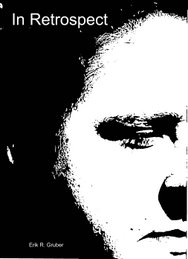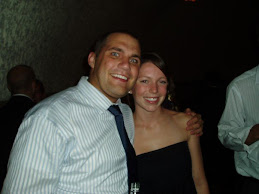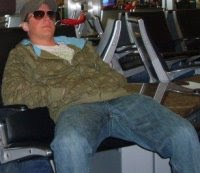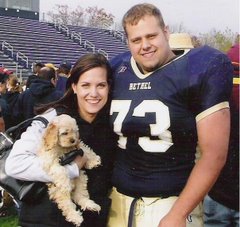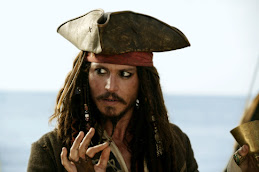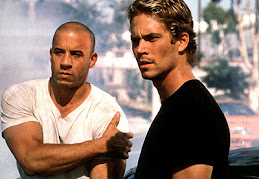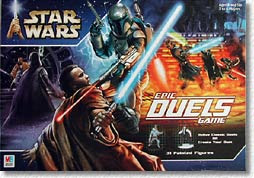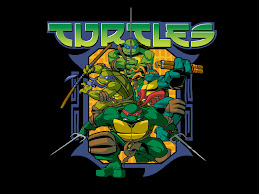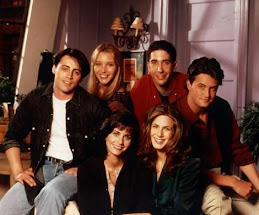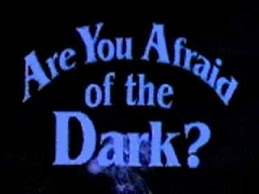Karl Rove is pure evil, now let me tell you why.
I wasn’t aware of the extent of Rove’s treachery or corruption before I started my research. It’s actually pretty hard to believe that a political figure could do some of the things he’s done and not end up in jail or hanged for treason. But he’s a slippery bastard and has managed to manifest his power just as he should be facing exile. He is now arguably the most powerful man in America. He shapes the government according to his will and enjoys complete political immunity (he’s not an elected official; he hasn’t been sworn into any office, so he has no obligation to the American people).
Let’s take a look at his filthy track record (I’ll try to make this brief. I realize this stuff isn’t always the most exciting):
At the age of 9 Rove became a supporter of Nixon (that says it all) and entered into the political foray. During high school he served as student council president and as his school’s chairman for former Senator Wallace F. Bennett’s reelection campaign. He enrolled at the University of Utah in 1969 as a political science major, got an internship with the Utah Republican Party, landed a job in Illinois in 1970, and turned into a truly disreputable political force.
Rove’s first (documented) sinister act came while working for the Republican Party in Illinois. Using a fake identity he broke into the campaign office of Democrat Alan J. Dixon, who was running for Illinois State Treasurer, and stole 1,000 sheets of paper with campaign letterhead. He proceeded to print campaign rally fliers advertising “free beer, free food, girls and a good time for nothing” and distributed them at rock concerts and homeless shelters. The intent was to disrupt Dixon’s rally, but Dixon went on to win the election anyway.
This is a seemingly minor infraction committed by an overzealous 19 year go-getter, but it is offers a foreboding hint of things to come.
In 1971 Rove dropped out of school to work for the party full time, a problem because he had received a draft deferment due to his enrollment in college. He maintained his deferred status by enrolling in some classes at the University of Maryland and withdrawing at the beginning of the semester. Odd that someone so eager to send others to war is himself a draft dodger.
In 1972 Rove was an active participant in Richard Nixon’s presidential campaign and became a protégé of Donald Segretti, who was later convicted as a Watergate conspirator. Good mentor.
In 1973 Rove started campaigning for the national chairman of the College Republicans, as welling as speaking at training seminars for young Republicans. After some dispute following the national chairman election (Rove and his cohorts produced a copy of the College Republican constitution which differed significantly from the one his opponents were using and used this document to question their credentials) recordings of training seminars at which Rove had spoke were anonymously given to the Washington Post. On these recording Rove discussed campaign techniques including digging through opponents’ garbage cans. Rove was investigated by the FBI, but he ultimately escaped unscathed, as they had bigger fish to fry (Watergate). It was during this time that Rove met the elder Bush, who was influential in convincing the FBI to back off, and went on to become his special assistant in the Republican National Committee.
In 1986, while working on a gubernatorial campaign, Rove was the mastermind behind a bugging scandal in which he accused the Democrats of bugging his office. When the FBI investigated it discovered that the batteries in the bugs would need to be changed every few hours and concluded that Rove had planted the bugs himself.
While working on an Alabama Supreme Court election in 1994 Rove circulated rumors that his candidate’s opponent was a pedophile. During George W. Bush’s 1994 gubernatorial race he had pollsters ask voters if they would be “more or less likely to vote for (Democratic opponent) Governor Richards if they knew her staff is dominated by lesbians.” In Bush’s 2000 presidential bid he used racism to undermine support for John McCain in the south by have pollsters ask “Would you be more likely or less likely to vote for John McCain for president if you knew he had fathered an illegitimate black child?”
When George W. was inaugurated Rove was appointed Senior Advisor to the President. I find it odd that a man who up until that point had been working on (seemingly) minor campaigns suddenly became the right hand man of leader of the free world. Unless they know something that we don’t…
In his new post Rove quickly earned the unwavering trust of the president, accompanying him to high profile meetings with foreign leaders and creating policy. In 2002 Rove became the Chair on the White House Iraq Group, which was created to develop “a strategy for publicizing the White House's assertion that Saddam Hussein posed a threat to the United States.” This apparently meant lying to the American public, as very few of the white house’s assertions about the imminence of the Iraqi threat have come to fruition.
Meanwhile, Rove was helping to create administration energy policy while holding significant amounts of stock in energy companies (including Enron). This should have been a slam dunk for the ethics committee, but wait, Rove isn’t an elected official, so he doesn’t answer to the ethics committee.
During Bush Jr.’s reelection campaign Rove was accused of issuing terror warnings whenever John Kerry’s ratings rose. When the wire-tapping scandal broke in 2006 Rove announced that planned terrorist attacks had been thwarted. Then of course there’s the CIA operative Valerie Plame/identity leak scandal (I don’t have time to get into details here, but Rove allegedly revealed her identity to news sources, Scooter Libby took the fall). And most recently there are the US Attorney firings, for which Alberto Gonzalez will serve as the fall man, and Rove will once again escape untouched (even though there is concrete evidence that his use of email violated the Presidential Records Act).
I’m sorry I don’t have more time to go into the details of each of these scandals. I’m merely one man trying to offer a taste of the conscienceless man that is Karl Rove. He has no regard for law or political ethics, and he will never have to answer for his actions because he enjoys complete immunity.
Perhaps the most conspicuous thing about Rove is his ability to be inconspicuous. He is always working in the background, serving on seemingly minor campaigns that actually have national importance apparent only to an elite few.
Interesting side note: Rove never actually earned a college degree.
A brief response to Reader of the Month P Corc’s comments on yesterday’s post:
The intent of both yesterday’s and today’s post was to point the spotlight at Karl Rove, a man who I believe is actually responsible for most of the deceits, inconsistencies, and mess-ups that Bush takes the heat for. If anything, this has been in defense of Bush. He is an honorable American and in my opinion a strong leader, but he made a major miscalculation when he appointed Rove as his right hand man. I will not back down on my opinion that Karl Rove is political corruption incarnate.
That being said, I’ll respond more directly to the comments made. I’ll agree that most of the shmucks protesting the war have absolutely no idea what’s going on, and they never did. They think they are being independent thinkers, resurrecting the “damn the man” mentality of the late ‘60s/early ‘70s. The problem is that very few of them are actually capable of independent thought. They regurgitate the propaganda they are fed by the media and spew it back out as the best substitute for “independent thought” they can muster. But everyone forgets that the media is ultimately a business and they will say whatever they need to in order to win ratings. To quote Gladiator, they “will give us death, and we will love them for it.” They play off our fears, they know we are angry and they give us someone to blame for our problems, for not having a better lot in life. And we love them for it.
Anyone who proposes pulling our troops out now as a viable solution to the conflict is oblivious to the dangers of the real world or the realities of the situation. Not that I’ve been over there, but it only takes a small amount of objective reasoning to see that the results would be disastrous. Obviously a strategy change is in order, but if you think the answer to the problem is to leave, then you are a coward and a damn idiot. Unfortunately the dumbest people are also usually the loudest.
I commend your concession that not all protesters are crackpots. Some, as you have stated, have respectable issues with the war. I, too, respect those who are against war in general. I wish I could maintain that sense of idealism and peace. I also laud those who are knowledgeable about the situation and see the need for strategy changes. The war has been mishandled, and I challenge anyone to argue that point.
As for myself, I see the need for war, but have difficulties with this one based on two points. First, I think it was the wrong time to start a war with Iraq. It was inevitable that Saddam Hussein would eventually need to be removed from power. He was becoming increasingly isolated and erratic and his people were suffering. But as I’ve said in previous posts, I think the imminence of his threat was exaggerated by the administration (it just so happens Karl Rove), and the decision was based more on politics and war mongering than safety concerns. Saddam’s WMD’s have yet to be found and his link to Al Qaeda was tenuous at best. We should have continued to focus the war effort on terrorism (the real imminent threat), which would have meant more funding, soldiers and intelligence devoted to eradicating Al Qaeda and making the global community a safer place.
My second issue with the war is that its architects, namely Donald Rumsfeld, put very little care or effort into understanding the situation in Iraq, the culture of the people, or the resources that would be necessary to rebuild the shattered country. He was grossly unprepared, and as a result the war was mishandled at nearly every step.
Your comments about loyalty are intriguing and I think they deserve their own post. Look for it on Monday…
Thanks for reading.

 The luck of the night goes to Philadelphia, who ended up with Derrick Byars (Portland picked him 42nd and traded him for practically nothing). He’s an all around scorer who was projected to go in the first round by many mock drafts. I predict he’ll be the Michael Redd of 2007.
The luck of the night goes to Philadelphia, who ended up with Derrick Byars (Portland picked him 42nd and traded him for practically nothing). He’s an all around scorer who was projected to go in the first round by many mock drafts. I predict he’ll be the Michael Redd of 2007.











 Late last week the Timberwolves traded point guard Mike James to the Houston Rockets for power forward Juwan Howard. Considering how fervently they pursued James last off season, and the ridiculous contract they gave him, they will undoubtedly come out once again looking like uninformed rubes. Nevertheless, I’m in full support of this trade.
Late last week the Timberwolves traded point guard Mike James to the Houston Rockets for power forward Juwan Howard. Considering how fervently they pursued James last off season, and the ridiculous contract they gave him, they will undoubtedly come out once again looking like uninformed rubes. Nevertheless, I’m in full support of this trade.








